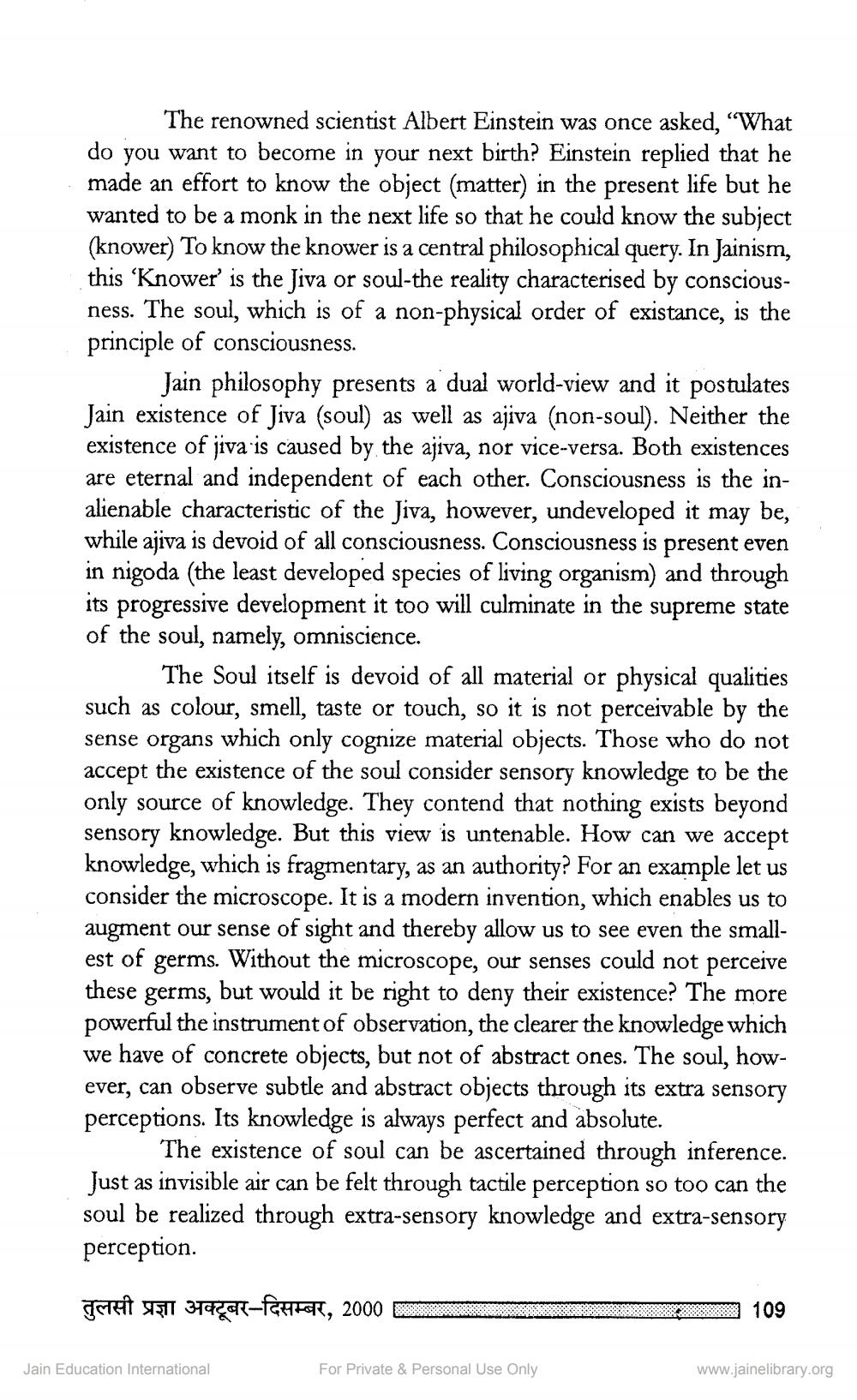________________
The renowned scientist Albert Einstein was once asked, "What do you want to become in your next birth? Einstein replied that he made an effort to know the object (matter) in the present life but he wanted to be a monk in the next life so that he could know the subject (knower) To know the knower is a central philosophical query. In Jainism, this ‘Knower' is the Jiva or soul-the reality characterised by consciousness. The soul, which is of a non-physical order of existance, is the principle of consciousness.
Jain philosophy presents a dual world-view and it postulates Jain existence of Jiva (soul) as well as ajiva (non-soul). Neither the existence of jiva is caused by the ajiva, nor vice-versa. Both existences are eternal and independent of each other. Consciousness is the inalienable characteristic of the Jiva, however, undeveloped it may be, while ajiva is devoid of all consciousness. Consciousness is present even in nigoda (the least developed species of living organism) and through its progressive development it too will culminate in the supreme state of the soul, namely, omniscience.
The Soul itself is devoid of all material or physical qualities such as colour, smell, taste or touch, so it is not perceivable by the sense organs which only cognize material objects. Those who do not accept the existence of the soul consider sensory knowledge to be the only source of knowledge. They contend that nothing exists beyond sensory knowledge. But this view is untenable. How can we accept knowledge, which is fragmentary, as an authority? For an example let us consider the microscope. It is a modern invention, which enables us to augment our sense of sight and thereby allow us to see even the smallest of germs. Without the microscope, our senses could not perceive these germs, but would it be right to deny their existence? The more powerful the instrument of observation, the clearer the knowledge which we have of concrete objects, but not of abstract ones. The soul, however, can observe subtle and abstract objects through its extra sensory perceptions. Its knowledge is always perfect and absolute.
The existence of soul can be ascertained through inference. Just as invisible air can be felt through tactile perception so too can the soul be realized through extra-sensory knowledge and extra-sensory perception.
INTEL X511 37açar-fHR, 2000
109
Jain Education International
For Private & Personal Use Only
www.jainelibrary.org




